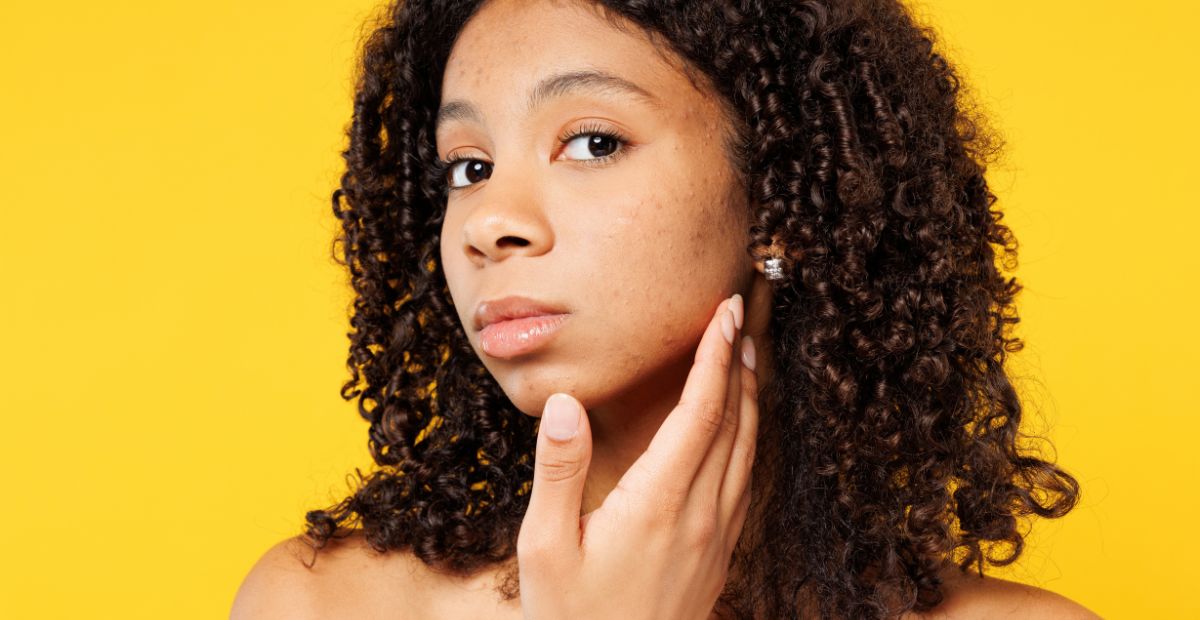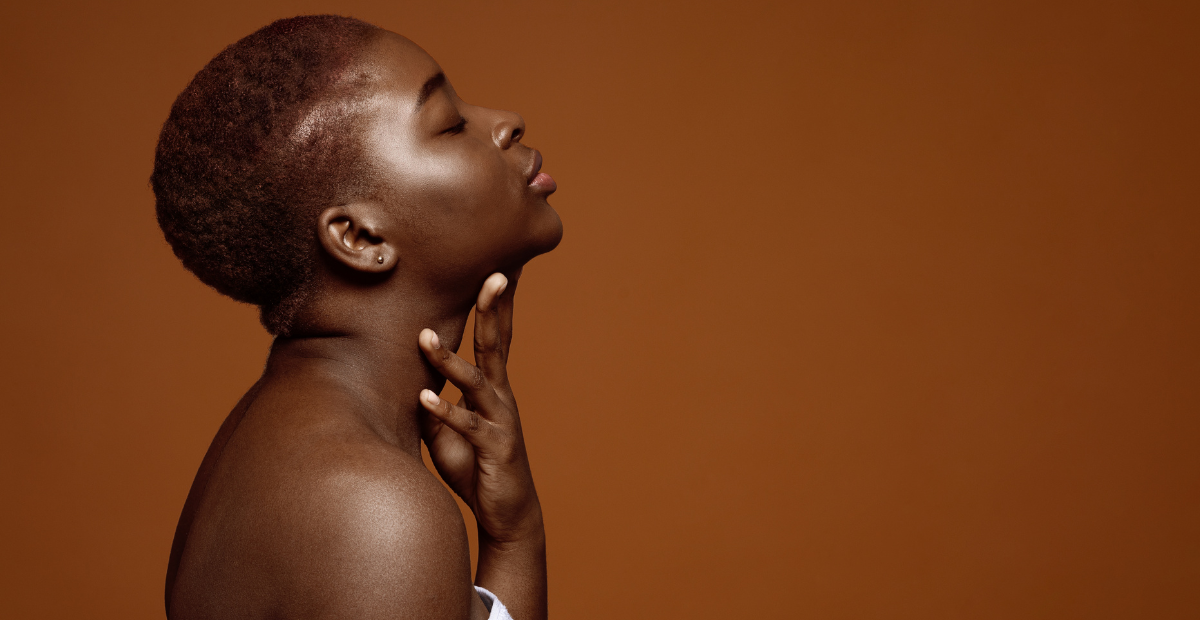Is Salt Water Good for Your Skin?
Onskin Content Team
Your guides through the skincare chaos

Warm sand under your feet, shells in your pocket, that sun-kissed look, jellyfish… It’s cool how even the littlest things about the sea make us feel happier! (OK, those jellyfish encounters aren’t exactly feel-good, we agree). Among the benefits of the seaside, some people (perhaps you too?) also mention how much better their skin looks after contact with salt water—they return from vacay with fewer flare-ups and a more even tone. So is salt water good for your skin or are these just happy hormones at play? Can you simulate seaside conditions with a DIY concoction, or is it just another TikTok myth? Let’s dive straight into all the details.
Salt Water “in the Wild”
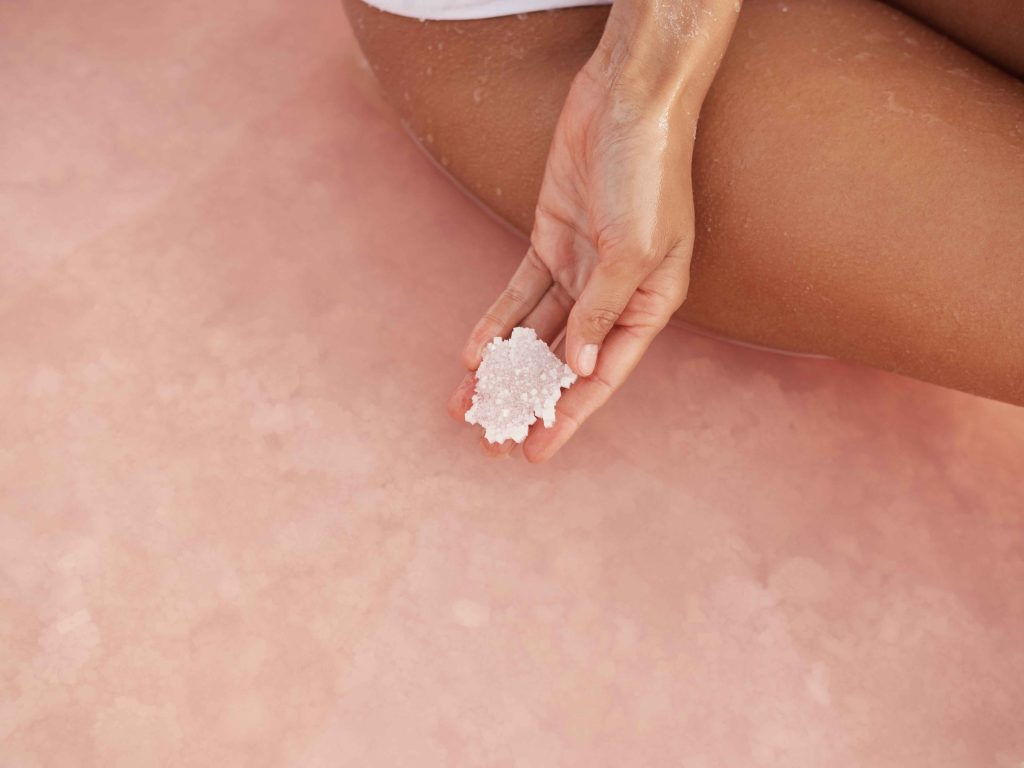
The ever-present strength of salt water, be it from the Mediterranean or Red Sea, lies in its high mineral content (including sodium, calcium, and chlorine) and other elements (e.g., zinc and iodine), and the amount of good stuff is higher in deep water, as a review shows. While salt water can make some people’s skin feel dull and dry (especially after staying in water for a long time), it also offers potential positive effects:
- Natural exfoliation—the salt scrubs away dead skin cells, helping to boost cell turnover and make the skin more radiant.
- Drying active pimples and bringing an antibacterial effect: salt water eliminates bacteria and may help patch up the natural pH of your skin, while also absorbing the excess oil.
Skin-Safe Dips 101
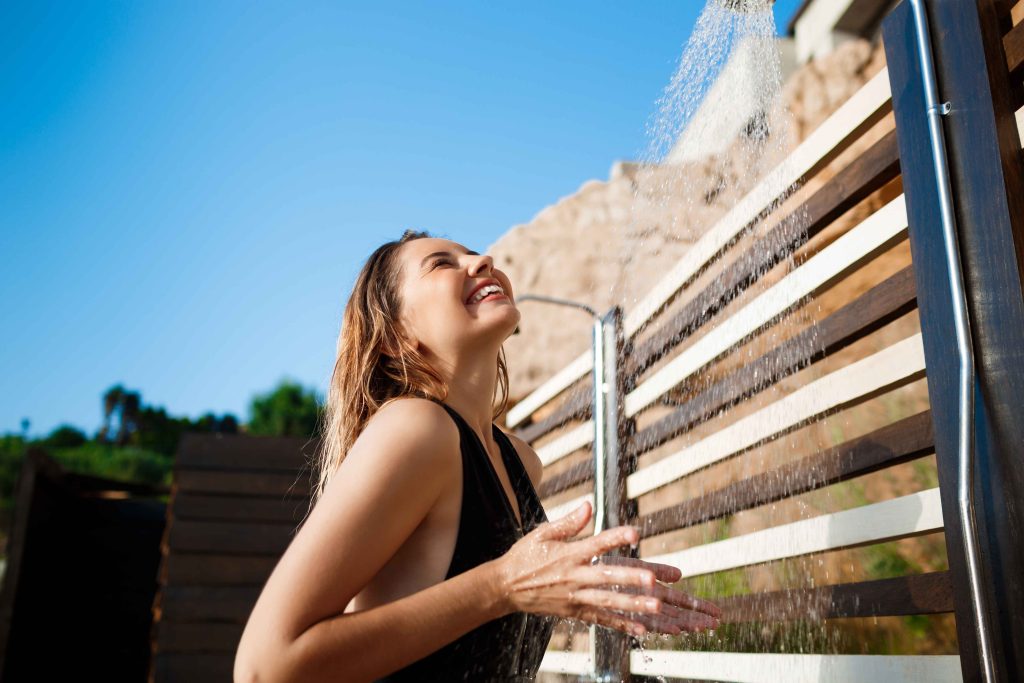
Now itching even more for some seaside time? Here are just a few tips to ensure that salt water from the sea doesn’t harm your skin. First, ditch the idea of swimming in the ocean (or any open water or swimming pool) if you have open wounds or cuts—this could lead to an infection. Then—yes, here we go again—remember to apply a water-resistant sunscreen at least 15 minutes before swimming.
Enjoyed your dip? Afterward, you probably want to lounge on your towel and allow the sun to air-dry you. However, leaving salt on your skin can lead to irritation. Ideally, rinse off with clean water, then pat yourself dry with a cotton towel. After that, apply your trusted moisturizer to rehydrate your skin and restore its barrier function.
Salt Water at Home—Yay or Nay?
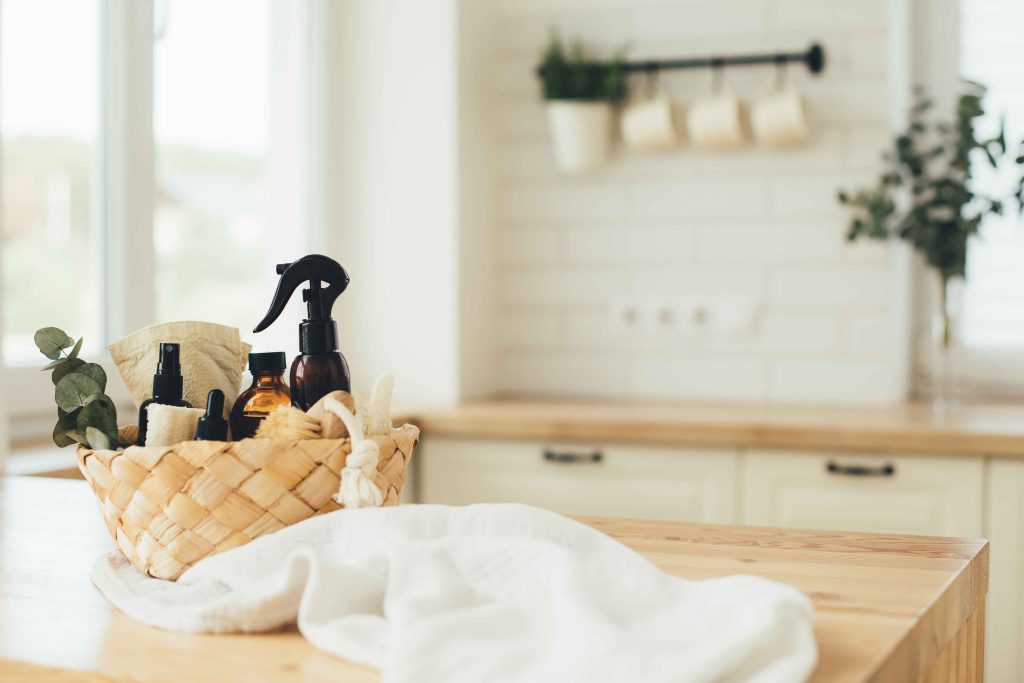
If there was a universal disclaimer for skincare hacks online, it would be “Take this with a grain of salt.” The same applies to those “This homemade salt spray will ERASE your spots overnight!” videos on your FYP. Most skin experts pour cold water on this promise, and here’s why.
To start, if your skin is sensitive or dry (or both), salt water-based treatments might even worsen its condition by causing irritation and flakiness. Ideally, it’s best to consult a derm to check if this particular ingredient suits your unique skin needs.
Experts agree that salt water works best for oily or acne-prone skin and may potentially bring certain perks like soothing zits, but DIY saltwater concoctions are not as potent as swimming in the ocean.
Still, If you’re up for testing the waters of using salt water at home, stick to fine table salt or sea salt (coarse types can be too rough for your skin). And whatever the recipe you choose online, try not to go overboard with salt—here, more doesn’t mean a better result. If your skin isn’t fond of the mixture, you’ll probably know right off the bat through redness, flaking, or itching. If you notice none of these and would like to give it another go, reserve salt water for occasional use, not as an essential step in your routine.
Feeling salty about your skin’s reaction but don’t want to sleep on the powers of salt water? Then you may want to opt for professionally formulated products like toners and washes containing this ingredient.
By the way, an ingredient scanner can help you check if a product you’re considering buying is a good fit for your skin (you can simply scan the product or its barcode, or type in its name.).
Before You Go
We know how tempting it is sometimes to try out a hack that’s making waves online. But our advice? Let sea salt work its magic during your seaside baths or in professional products. And if you want to try homemade seawater treatments, consider consulting a dermatologist first—they always know best.
FAQ
-
Where do I start with OnSkin?
Download the app and think of a product you’d like to know more about. Then, go to the main screen and choose how you’d like to get the info —by manually looking it up in the search bar, by scanning its barcode, or by simply taking a picture of the packaging. Once you’ve done any of these, you can see how safe the product is and if it suits your skin or hair (if this analysis is available).
-
What is Safety Rating, and how is it calculated?
In OnSkin, we base product rates on ingredients. Each is closely studied by our medical team and then evaluated. This way, each product gets a score from 0 to 100, with 100 as the safest level.
Safety Levels
- Excellent (76–100)
- Good (51–75)
- Not great (26–50)
- Bad (0–25)
These scores are backed by the latest scientific studies. You can find links to the resources we’ve used on each ingredient page. To assess the safety of product ingredients, we evaluate them according to the following parameters/criteria
- Endocrine disruption risk / Reproductive toxicity
Indicates the probability of mimicking, blocking, or interfering with the body hormones.
- Сarcinogenicity
Measures the potential risk of inducing cancer.
- Allergy risk
Estimates the probability of an allergic reaction.
- High concentration alert
Determines the risk of being unsafe in certain amounts.
-
What is Skin Match?
Based on the info you input about your skin type, age, skin care goal, and other “settings,” OnSkin checks how well a product is tailored to your unique skin needs — it’s basically like a dermatologist helping you find the right products, minus the fees and the long wait. The product you’re checking might be labeled as It’s a match!, Hit-or-miss, or Not a match for you. The app also detects ingredient groups such as Anti-acne, Anti-inflammatory, Moisturizes, May be drying, Comedogenic, and others — by tapping one, you see exactly what ingredients from this or that group are in the product.
-
I seem to have a problem with using the app. Who should I contact?
Please reach out to us at [email protected], and we’ll carefully look into your issue. Your ideas for improving the app are also very welcome!
-
Do you have an Android version?
Not yet! Hey Android users, we hear you, and we're thinking about making an Android version, but we haven't started the development yet.
Tracker Sent!
It’s on the way to your inbox.


